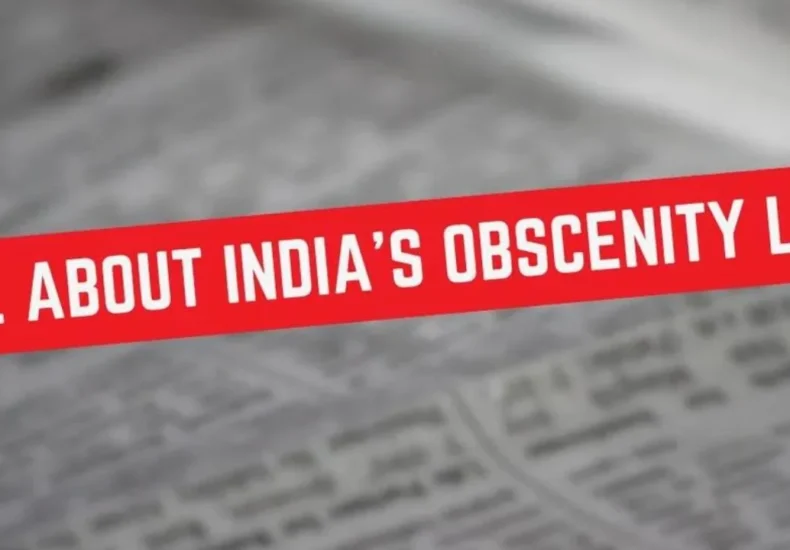
Podcast Ban Lifted? Indian Host Can Resume Shows Under ‘Moral Guidelines
Indian Podcaster Cleared to Resume Shows – But Only If ‘Moral Standards’ Are Met
In a landmark ruling, India’s top court has allowed a controversial podcaster to return to broadcasting after facing obscenity charges—but with a catch. The podcaster must now adhere to moral and ethical guidelines, setting a precedent for how digital content creators navigate freedom of speech vs. community standards in India.
This decision has sparked debate among content creators, legal experts, and audiences. While some see it as a win for free speech, others argue it reinforces censorship in digital media. So, what does this ruling really mean? Let’s break it down.
The Controversy: Why Was the Podcaster Charged?
The podcaster in question, whose name remains at the center of public discourse, was accused of obscenity for content deemed morally inappropriate by authorities. While the exact details of the objectionable material were not disclosed, the charges likely stem from:
🚫 Use of Explicit Language – Strong or provocative language that some consider offensive.
🚫 Sensitive Topics – Discussions on sex, politics, or religion, which can be controversial in India.
🚫 Community Backlash – Complaints from groups who found the content disrespectful to cultural or moral values.
Under Indian laws, obscenity is a punishable offense, especially when content is distributed through mass media platforms.
Court’s Ruling: A Middle Ground?
The Supreme Court of India has taken a balanced approach, allowing the podcaster to resume their shows, but with strict ethical and moral standards in place. The ruling implies:
✅ Freedom of Expression Is Protected – The podcaster is not banned entirely, a sign that India values digital free speech.
✅ Content Must Be Monitored – Future episodes must align with moral and legal standards, preventing content that is explicit or offensive.
✅ Precedent for Other Creators – This ruling sets a new standard for how digital content is regulated in India.
The verdict highlights India’s delicate balancing act—preserving free speech while ensuring content remains socially acceptable.

Court Allows Indian Podcaster’s Comeback—With a Strict Warning on Obscenity
What This Means for Indian Content Creators
This case serves as a wake-up call for India’s growing podcast and digital content industry. Whether you’re a YouTuber, podcaster, or social media influencer, this ruling brings important takeaways:
🎙️ Know Your Limits – Creators must be aware of obscenity laws and what content could be considered offensive.
📜 Follow Ethical Guidelines – Expect platform policies and legal frameworks to become stricter in regulating speech.
⚖️ Legal Protection Matters – Podcasters may need legal counsel to navigate what is permissible under Indian law.
💡 Creative but Responsible Content – Striking a balance between engagement and ethics is key to long-term success.
The Bigger Debate: Free Speech vs. Censorship
The ruling has reignited discussions on freedom of speech in India. Some believe restrictions on content are necessary to protect cultural values, while others argue it’s a form of censorship that could limit artistic and journalistic expression.
🔹 Supporters of the Ruling Say:
✔️ Content creators must be responsible and respect cultural values.
✔️ Digital media should have regulations, just like TV and film.
✔️ Protecting public morality is essential in a diverse country like India.
🔹 Critics Argue:
❌ Defining “morality” is subjective and could lead to unfair censorship.
❌ Freedom of expression should not be restricted due to public outrage.
❌ Government control over digital media could lead to self-censorship.
With digital content growing in influence, India must find a sustainable model that respects free speech while maintaining social harmony.
How Will This Affect Podcasting in India?
The Indian podcasting scene is booming, with millions tuning in daily for content on news, politics, entertainment, and self-improvement. But now, podcasters may need to rethink their approach:
📢 Content Review May Increase – Platforms may tighten their policies to avoid legal troubles.
📢 More Regulation Coming? – The government could introduce new guidelines for digital content creators.
📢 Growing Audience Awareness – Listeners may pay more attention to ethical content, shaping future trends in digital media.
For podcasters, the best strategy is to stay informed, creative, and responsible while pushing boundaries within legal limits.
Final Thoughts: A New Era for Digital Content?
The Supreme Court’s ruling allowing the Indian podcaster to return with moral restrictions reflects the complex landscape of digital media regulation. While it acknowledges the importance of free speech, it also underscores the need for responsible content creation.
For creators, the message is clear: Podcasting in India isn’t going anywhere, but it’s evolving. Balancing expression, ethics, and legality is now the key to success.
🔔 What’s your take? Should content creators be bound by moral guidelines, or does this limit free speech? Let’s discuss!
Also read:
Nvidia & Broadcom Bet on Intel: Testing Chips with Its Cutting-Edge
You may also like
Archives
Calendar
| M | T | W | T | F | S | S |
|---|---|---|---|---|---|---|
| 1 | ||||||
| 2 | 3 | 4 | 5 | 6 | 7 | 8 |
| 9 | 10 | 11 | 12 | 13 | 14 | 15 |
| 16 | 17 | 18 | 19 | 20 | 21 | 22 |
| 23 | 24 | 25 | 26 | 27 | 28 | |





Leave a Reply